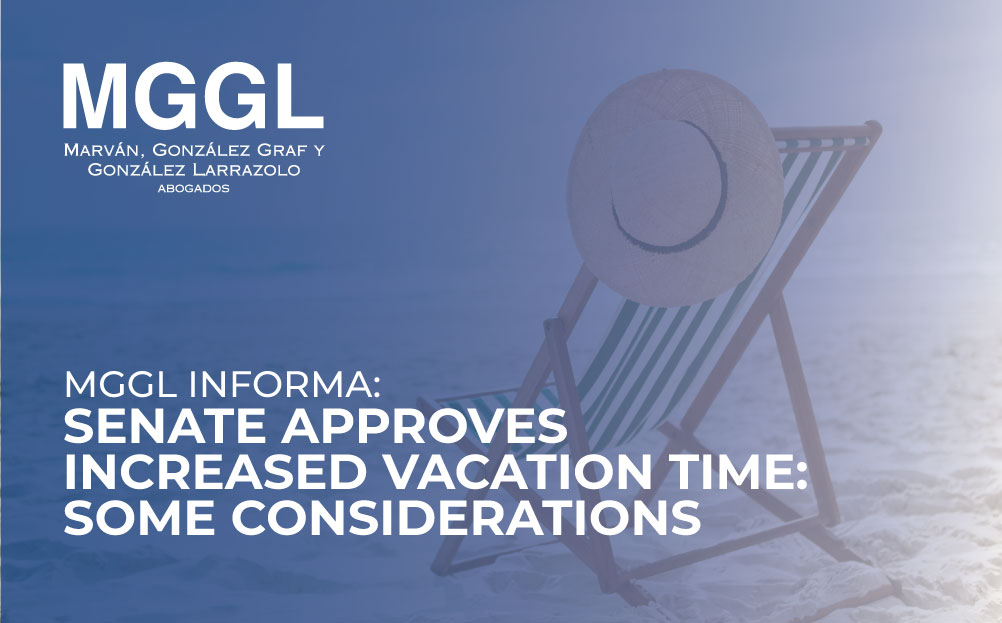On December 14, 2022, the Plenary Session of the Senate unanimously approved the draft bill to amend Articles 76 and 78 of the Federal Labor Law, presented by the Chamber of Deputies, regarding vacation time. The ruling is now passed to the Executive for its publication in the Official Gazette of the Federation. It will become effective on January 1st, 2023.
As mentioned in our previous newsletter, this reform is justified as our country was falling behind in terms of paid time off, and official vacation periods had not been revised since the enactment of the Federal Labor Law in 1970.
Aunque algunas iniciativas propuestas por senadores de diferentes grupos parlamentarios contemplaron esquemas de vacaciones con un mayor número de días, el dictamen aprobado se centró en el derecho a vacaciones pagadas. El texto reformado es el siguiente:
“…
Article 76. - Workers with more than one year of service shall enjoy an annual period of paid vacation, which in no case may be less than twelve working days, and which shall increase by two working days, until reaching twenty, for each subsequent year of service.
As from the sixth year, the vacation period shall increase by two days for every five years of service.
Article 78. -Of the total period corresponding in accordance with the provisions of Article 76 of this Law, the employee shall enjoy at least twelve days of continuous vacation. Said period, at the discretion of the worker, may be distributed in the manner and time so required.
…”
For clarity, the new vacation scheme would look as follows:
| Years worked | Vacation days |
|---|---|
| 1 | 12 |
| 2 | 14 |
| 3 | 16 |
| 4 | 18 |
| 5 | 20 |
| 6 a 10 | 22 |
| 11 a 15 | 24 |
| 16 a 20 | 26 |
In regard to the table above, although it is in the same terms as it was included in the various draft bills, from some points of view there could be a contradiction between the approved legal text and the way in which the new scheme was established. Considering that the reform states that the starting point is twelve days, increasing by two until reaching twenty and that from the sixth year onwards, two days will be increased every five years, this could lead to the interpretation that the period from the sixth to the ninth year is twenty days and that, until the tenth year, after the five-year period has elapsed, there would be a right to twenty-two days.
Another issue that generated controversy was whether the vacation period should be enjoyed continuously. The considerations of the approved bill point out that the reform seeks to guarantee and grant certainty to the employees, as well as paid time off according to their needs, but also recognizing that there are activities that cannot be substituted due to the degree of specialization of the work required. Therefore, although continuous vacation periods should be granted in general terms, the legal text allows the parties to agree on the time and form of distribution of vacation days, either continuously or partially.
Regarding the entry in force of the new provisions, vacation days already accrued and still pending to be taken will not be affected by this change. However, as of January 1st, 2023, when employees reach their anniversary, they will be entitled to a vacation period under the new scheme.
—
